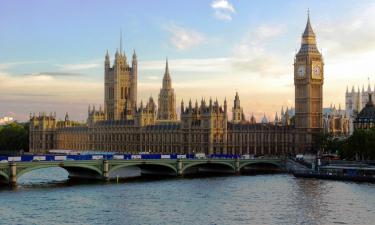Tim Bancroft-Hinchey: “QUO VADIS, EUROPA?”
The Europe of 15 members will not be the same as a Europe with 28. The model will have to change, but how? The title of this article was a phrase coined by the Vice-Chancellor of Germany, Joschka Fischer in his speech at the Humboldt University in Berlin. Fischer was thinking of Europe long-term, beyond the political horizons of tomorrow or the next parliamentary elections in each member state. Let us now answer the question “QUO VADIS EUROPA?” (Where are you going, Europe?) with a synthesis of ideas from four leading figures, expressed in recent speeches and let us analyse how these positions will influence the eastern European countries. Joschka Fischer, Vice-Chancellor, Germany Rejecting the old idea of a Federal European State, Fischer proposes a revised constitution in a Federation of European States, with a European Government and Parliament, which guarantees the rights and duties of EU citizens and defines where and when the member states should act. He is in favour of a double legitimacy of citizens, as members of their own countries and as members of the EU. He is in favour of a new treaty establishing a founding group of a restricted number of countries, which will in future be enlarged. This is the so-called “Two-speed Europe”. Advice for future EU applicants: It will take you years to reach the status of full rights but you may be lucky enough to receive EU monetary grants, if countries like Portugal, Ireland and Greece do not veto your entry. Jacques Chirac, President of France Chirac is in favour of an even more restricted group : based around France and Germany, which he calls the “pioneer group”. He wants to group together countries which desire to proceed with common, coordinated defence, economic and social policies. However, Chirac does not share the idea of a Federation. Instead he considers that those states which want to follow a common policy can do so outside a legislative block and as a restricted group following a common path. Thus, Chirac is proposing a separation of competences, a distinction between member-states and the union itself, far from the “two-speed Europe”. Advice for future EU applicants : You will have to satisfy Paris and Berlin before you receive any substantial aid, otherwise this will be vetoed. Anthony Blair, Prime Minister of the United Kingdom Prime Minister Blair prefers a Declaration of Rights instead of a Constitution, defining where the rights of a nation end and where those of the Union start. He is in favour of the European Council becoming the government of the Union, with yearly directives and action plans being established. However, it is in the national parliaments and governments of member states where democratic legitimacy must lie, and Blair proposes that the national parliaments constitute a second chamber of the European parliament, under the European Council. Firmly against a “two-tier” system, the British prime minister prefers a more liberal framework in which some countries can advance more in certain areas than others, but without a rigid legislative system. He prefers that countries follow the natural capacities inherent in their state of development. Prime Minister Blair is the first European politician to wholeheartedly support a “European Super-Power” In his words: “Despite its origins, the EU is no longer a question of peace. It is also a question of the projection of collective power in the world”. Advice for future EU contenders: This model of Europe starts with the message of goodwill that we are all Europeans. The goodwill expressed in the British prime- minister’s address is genuine and the idea is basically for us all to come together in a European state, with individual national liberties being guaranteed. Romani Prodi, President of the European Commission Understandably, the President of the European Commission is in favour of the European Union continuing to function as…a Union. He is firmly in favour of a multi-state Union, based on a pure inter-governmental state of equality under the European Union umbrella. He believes it should be the European Commission, and not individual governments, which acts as spokesman for the 15 member-states regarding the adoption of the Euro, EU External Policy and Common Security. However, certain member-states wish to have more autonomy of decision, outside the constraints of the Union. Advice for future EU contenders: those countries having more trade with the EU and whose parameters approximate those of the 15 member states are more likely to be invited to join the party.
Having lived in Portugal for 20 years, before this country joined the EU, and having seen the changes since Portugal was accepted as a full member, I can state that for poorer countries, membership of the EU substantially increases the standard of living of the citizens. It is not impossible to retain one’s national culture and surprisingly, one finds more friends than enemies in a united Europe.
Tim Bancroft-Hinchey Lissabon
Subscribe to Pravda.Ru Telegram channel, Facebook, RSS!




